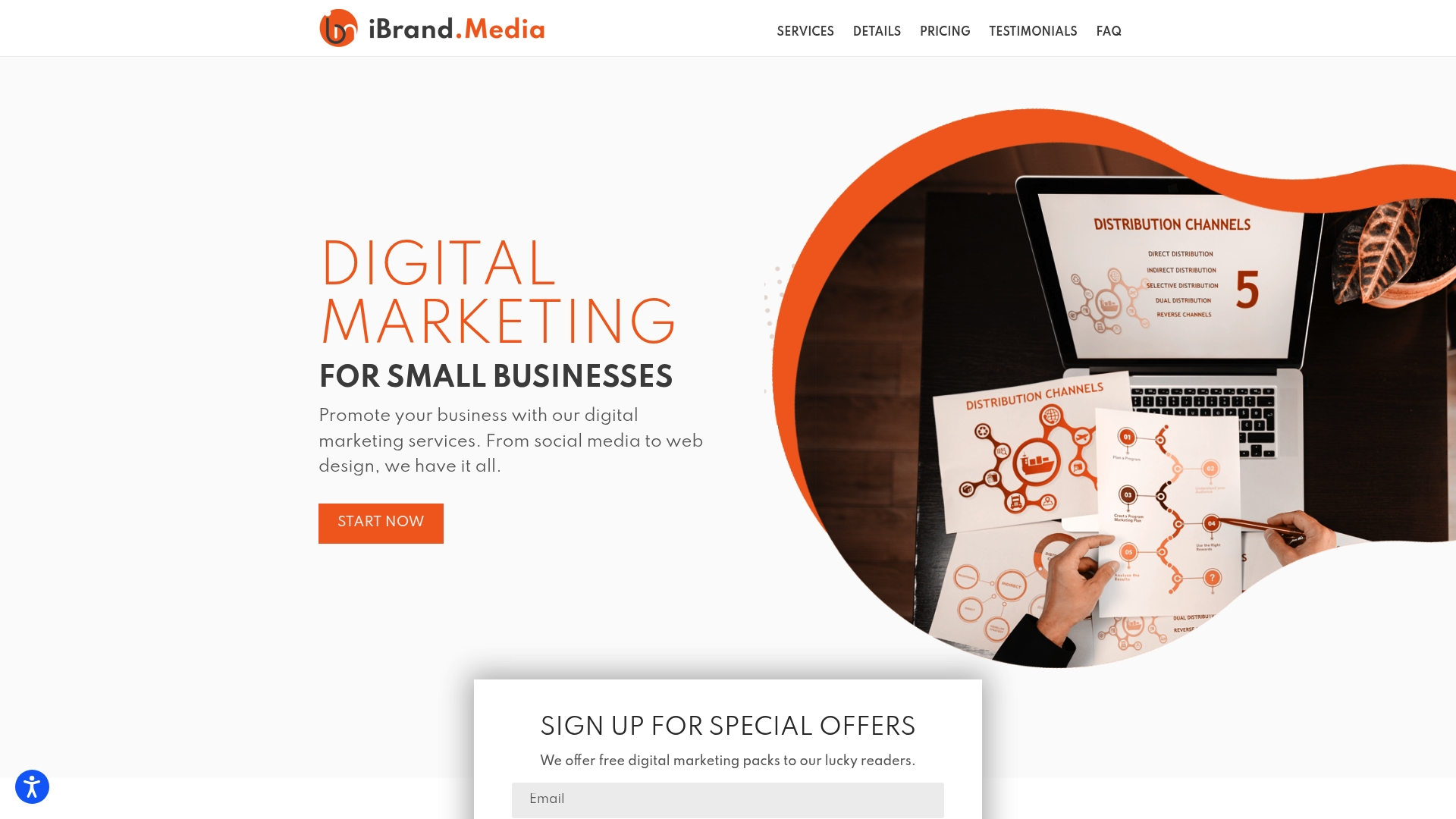Did you know that over 4.95 billion people use social media worldwide? With so many active users, businesses of every size are scrambling to stand out in crowded online spaces. Social media marketing can do more than raise your brand’s profile. The right approach builds genuine customer relationships and creates lasting engagement, setting you apart in a noisy digital world.
Table of Contents
- What Social Media Marketing Is and Isn’t
- Major Platforms and Their Key Differences
- Step-by-Step Social Media Campaign Process
- Effective Strategies for Small Businesses
- Budgeting, Results Tracking, and Analytics
- Common Mistakes and How to Avoid Them
Key Takeaways
| Point | Details |
|---|---|
| Social Media Marketing Focus | It emphasizes meaningful interactions and community building over traditional sales pitches. |
| Platform Selection | Each social media platform has unique features and audience preferences; tailor content accordingly. |
| Consistent Engagement | Maintain regular communication and build relationships with your audience for effective outreach. |
| Data-Driven Decisions | Track engagement metrics to refine strategies and maximize ROI, adjusting content based on performance insights. |
What Social Media Marketing Is and Isn’t
Social media marketing is a strategic digital communication approach where businesses leverage online platforms to connect with potential customers, build brand awareness, and drive engagement. Unlike traditional advertising, this method focuses on creating meaningful interactions through targeted content, multimedia storytelling, and direct audience communication.
At its core, social media marketing isn’t about bombarding followers with sales pitches. It’s a nuanced practice involving:
- Understanding audience preferences
- Creating valuable, shareable content
- Building genuine community relationships
- Measuring performance through analytics
For small business owners, social media marketing represents an accessible way to compete with larger companies. Learn more about social media strategies for businesses that can help level the playing field. Platforms like Facebook, Instagram, and LinkedIn offer cost-effective channels to showcase your brand’s personality, demonstrate expertise, and attract potential customers without massive advertising budgets.
Successful social media marketing requires consistent effort, authentic storytelling, and strategic planning. It’s not a one-size-fits-all solution but a dynamic process of understanding your audience, experimenting with content, and continuously adapting your approach based on real-time feedback and performance metrics.

Major Platforms and Their Key Differences
According to research from the National Center for Biotechnology Information, social media platforms are not one-size-fits-all but specialized networks catering to different communication needs and audience demographics. Each platform offers unique features and engagement opportunities for businesses looking to expand their digital presence.
Facebook remains the most versatile platform, supporting diverse content types and offering robust advertising tools for businesses targeting broad audiences. Instagram focuses on visual storytelling through photos and short videos, making it ideal for brands with strong visual identities. Discover how social media works for small businesses to leverage these platform differences effectively.
Professional networking finds its home on LinkedIn, which specializes in business connections and industry-specific content. Twitter excels in real-time updates and concise communication, perfect for brands wanting immediate audience interaction. For video-based content, YouTube provides long-form video hosting, while TikTok dominates short-form video entertainment, particularly among younger demographics.
Understanding these platform nuances is crucial. Each network has a distinct audience, content preference, and engagement style. Successful social media marketing requires strategically selecting platforms that align with your brand’s communication goals, target audience, and content strengths.
Here’s a comparison of major social media platforms and their business benefits:
| Platform | Key Features | Ideal Content Types | Primary Audience |
|---|---|---|---|
| Versatile Ad targeting |
Photos Videos Links |
Broad demographic | |
| Visual-first Stories |
Photos Short videos Reels |
Younger users Lifestyle |
|
| Professional networking | Articles Industry news Jobs |
Professionals B2B |
|
| Real-time updates | Short text Images Hashtags |
News followers Media |
|
| YouTube | Long-form video hosting | Tutorials Vlogs Webinars |
Wide age range |
| TikTok | Short-form viral videos | Creative clips Trends Challenges |
Gen Z Young adults |
Step-by-Step Social Media Campaign Process
According to research from the Substance Abuse and Mental Health Services Administration, developing an effective social media campaign requires a strategic, methodical approach. The process begins with comprehensive planning and understanding your specific marketing objectives.
Here’s a structured approach to creating a successful social media campaign:
- Define Campaign Objectives
- Identify specific, measurable goals
- Determine key performance indicators (KPIs)
- Align objectives with overall business strategy
- Audience Research
- Map out target demographic details
- Understand audience preferences and behaviors
- Select platforms where your audience is most active
- Content Strategy
- Develop compelling, platform-specific content
- Create a consistent brand voice
- Plan content mix (educational, promotional, entertaining)
Learn how to run social ads for local businesses to maximize your campaign’s reach and effectiveness. The key is crafting messages that resonate with your specific audience while maintaining authenticity and value.
The final crucial steps involve continuous monitoring and optimization. Track your campaign’s performance, analyze engagement metrics, and be prepared to adjust your strategy in real-time. Social media marketing is dynamic, requiring flexibility and a willingness to experiment and learn from each campaign’s successes and challenges.
Effective Strategies for Small Businesses
According to research from the University of Florida, effective social media marketing for small businesses hinges on building genuine relationships and maintaining consistent communication across digital platforms. The goal is not just broadcasting messages, but creating meaningful connections with your target audience.
Cost-effective strategies are crucial for small businesses with limited marketing budgets. These include:
- Creating high-value, shareable content
- Leveraging user-generated content
- Engaging directly with followers
- Using platform-specific features creatively
- Showcasing authentic brand personality
Discover practical social media marketing tips that can help transform your online presence without breaking the bank. Successful small businesses understand that social media is about storytelling – sharing your unique journey, challenges, and successes in a way that resonates with potential customers.
Data-driven decision-making is the cornerstone of effective social media strategies. Track your engagement metrics, understand which content generates the most interaction, and be willing to pivot your approach. Small businesses have a unique advantage: they can be more agile, personal, and responsive compared to larger corporations, turning their size into a strategic asset for digital marketing.
Budgeting, Results Tracking, and Analytics
According to research from the Substance Abuse and Mental Health Services Administration, effective social media marketing requires strategic budget allocation and comprehensive performance tracking. Small businesses must approach their digital marketing investments with precision and analytical rigor.
Budget Allocation Strategies:
- Start with 5-10% of total marketing budget
- Prioritize organic content creation
- Reserve 20-30% for targeted advertising
- Invest in analytics and tracking tools
- Continuously adjust based on performance metrics
Learn how to track marketing performance to maximize your return on investment. The key is understanding which metrics truly matter for your specific business goals, whether that’s engagement, lead generation, or direct sales conversions.
Most social media platforms offer built-in analytics tools that provide insights into audience behavior, post performance, and demographic engagement. These free resources allow small businesses to make data-driven decisions without significant additional investment. By consistently monitoring these metrics, you can refine your strategy, optimize content, and ensure your social media marketing budget delivers measurable results.
Common Mistakes and How to Avoid Them
According to research from the University of Florida, successful social media marketing requires strategic awareness and proactive mistake prevention. Small businesses often encounter predictable pitfalls that can significantly impact their digital marketing effectiveness.
Critical Mistakes to Avoid:
- Inconsistent posting schedules
- Ignoring audience engagement
- Using identical content across platforms
- Neglecting performance analytics
- Overselling instead of storytelling
- Failing to understand platform-specific nuances
Discover digital marketing mistake avoidance strategies that can transform your online presence. The most successful businesses recognize that social media marketing is about building genuine connections, not just broadcasting messages.
Understanding platform-specific behaviors is crucial. What works on Instagram might fall flat on LinkedIn, and a one-size-fits-all approach will likely result in minimal engagement. By tailoring content to each platform’s unique audience and maintaining a consistent, authentic brand voice, small businesses can navigate social media marketing challenges more effectively and create meaningful digital relationships.
Take Your Social Media Marketing to the Next Level with Proven Solutions
Understanding how social media marketing works is only the first step. Many small businesses struggle with creating consistent, authentic content and choosing the right platforms to engage their audience. You know the challenge of standing out in a crowded online space and measuring what really matters to grow your brand. The article highlights key goals like building genuine connections, tailoring content, and tracking performance to avoid costly mistakes.
Explore actionable strategies and insights that can transform your digital efforts into measurable results.

Don’t let uncertainty hold your business back. Partner with ibrand.media to get personalized social media management, targeted advertising, and real-time analytics tailored for small and medium-sized businesses. Act now to start crafting your authentic story with expert guidance that delivers quick, affordable results. Take the next step in boosting your online presence by visiting our main page and exploring how our solutions can match your business needs.
Frequently Asked Questions
What is social media marketing?
Social media marketing is a digital strategy where businesses use social media platforms to connect with customers, build brand awareness, and drive engagement through targeted content and multimedia storytelling.
How can small businesses benefit from social media marketing?
Small businesses can leverage social media marketing to compete with larger companies by showcasing their brand personality, demonstrating expertise, and attracting potential customers without significant advertising budgets.
What are some effective strategies for social media marketing?
Effective strategies include creating shareable content, engaging directly with followers, utilizing platform-specific features, and maintaining a consistent brand voice while showcasing authenticity in storytelling.
What common mistakes should I avoid in social media marketing?
Common mistakes include inconsistent posting schedules, ignoring audience engagement, using identical content across platforms, and overselling instead of focusing on storytelling to build relationships.

Recent Comments